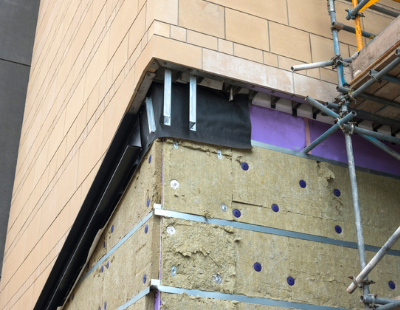How do I find an HMO?
When searching for an HMO online, focusing on properties with a gross yield of over 12% is essential. You should aim to find a property with the potential for the most rental rooms while avoiding small, cramped living spaces that are unlikely to attract tenants.
For maximum profitability, having at least five tenants to spread the cost of bills is ideal. Consider areas that are attractive to students and young professionals but not too desirable, as this will help to keep rents reasonable. When choosing the type of HMO to invest in, it's best to stick with either a house for students or one for young professionals rather than mixing the two.
Investing in nicer properties with features like en-suites can help you achieve a higher return on investment, and a property located within a 15-minute walk from a town or city centre is likely to be more popular amongst tenants.
The importance of a building survey when it comes to finding a profitable HMO
When considering the value of an HMO property as a profitable investment, it's best to get a valuation and building survey done by an impartial third party like a RICS Chartered Surveyor. Converting a property into an HMO often requires construction work, and a building survey can identify any potential issues that could increase costs.
One of the essential things a chartered surveyor can evaluate is the achievable rental income and yield of the property. An experienced surveyor can cover all aspects, from the property's location and structure to the potential for tenant retention. This can help to guide your decisions around rental pricing. For instance, if the transportation links are poor, a surveyor will have the expertise to advise you on how to price the property accordingly.
Furthermore, a surveyor will check that the HMO property doesn't violate any local planning regulations. This may not be something you can determine yourself.
How to find a reputable surveyor for your building survey
When appointing a surveyor to conduct a building survey, it's essential to consider several factors. First, make sure they are impartial and not recommended by your estate agent or mortgage broker. Second, consider the range of services offered, such as Homebuyer report or bespoke building surveys, and choose a surveyor with local knowledge. Third, don't just go for the cheapest option, but compare quotes and reviews to ensure the surveyor is responsive and knowledgeable.
Lastly, look for a surveyor certified by RICS for high-quality, independent advice and a dispute resolution service. Finally, choose a surveyor who is efficient in communication and can deliver your survey report in a timely manner.
How to calculate the value of an HMO
Calculating the value of a HMO depends on several factors. Firstly, it's important to determine whether the property is located in an Article 4 area, which requires planning permission to convert a single dwelling house into a HMO. If the HMO is in an Article 4 area and has planning permission, it may have a scarcity premium. Secondly, the size of the property is also a factor as HMOs with 7 or more bedrooms need Sui Generis planning permission.
If the property has Article 4 or Sui Generis planning permission, banks may value it based on an investment basis, which can result in a higher valuation. They calculate the sustainable market rent and apply a yield based on other market yields. For instance, if the property generates £40,000 rent a year and the local yields for similar HMOs are 10%, the investment value would be £400,000.
However, if the property is not in an Article 4 area and doesn't have Sui Generis planning permission, banks will typically value it based on comparables with other houses and HMOs. This is because there are no restrictions to prevent a nearby single dwelling house from being converted into an HMO. Often, they'll value it as a normal house, sometimes with an adjustment for the alterations needed to turn it into an HMO. For example, if you have a 5 bed HMO in a non-Article 4 area and similar houses sell nearby for £300,000, a valuer may add £50,000 for the alteration to use it as an HMO (e.g., installing fire alarms, fire doors, and en-suite).
It's important to understand the difference as HMO investments are often sold based on their yields. However, if the property is not in an Article 4 area, its value may only be that of other 'normal' houses with an allowance for alterations.
How to calculate the yield
Calculating the yield of a HMO involves evaluating its financial performance. A few key factors to consider are:
- Gross Rent: Determine the total monthly or yearly rent received from tenants.
- Operating Expenses: Factor in all expenses incurred in running the HMO property, including property management fees, insurance, utilities, maintenance, mortgage interest, repairs and void periods.
- Capital Expenses: Consider any one-time expenses incurred during the acquisition or improvement of the property, such as the deposit, closing costs, and capital upgrades.
- Net Operating Income (NOI): Subtract the operating expenses from the gross rent to calculate the net operating income.
- Capitalisation Rate (Cap Rate): Divide the net operating income by the property's market value to determine the capitalisation rate.
- Yield: Multiply the capitalisation rate by 100 to find the yield percentage.
It's essential to remember that the yield can vary over time and may be impacted by various factors, such as changes in the local housing market, occupancy rates, and operating expenses.
Investing in Houses in Multiple Occupation (HMOs) can provide a higher return on investment than traditional buy-to-let properties, but finding a profitable HMO requires careful consideration and expert guidance.
Working with a Chartered Surveyor during the building survey stage is crucial to ensure that you make the right decision for your property investment. They can assess potential issues, provide valuable information on the property's value, and ensure compliance with local planning regulations.
Ultimately, a building survey with an HMO valuation is essential to finding a profitable HMO investment. A chartered surveyor can evaluate the property's achievable rental income and yield and identify any potential issues that may increase costs. With the proper guidance and information, investing in a profitable HMO can be a smart move for those seeking a high return on investment, but make sure you seek expert advice in the process.








.png)










Join the conversation
Be the first to comment (please use the comment box below)
Please login to comment